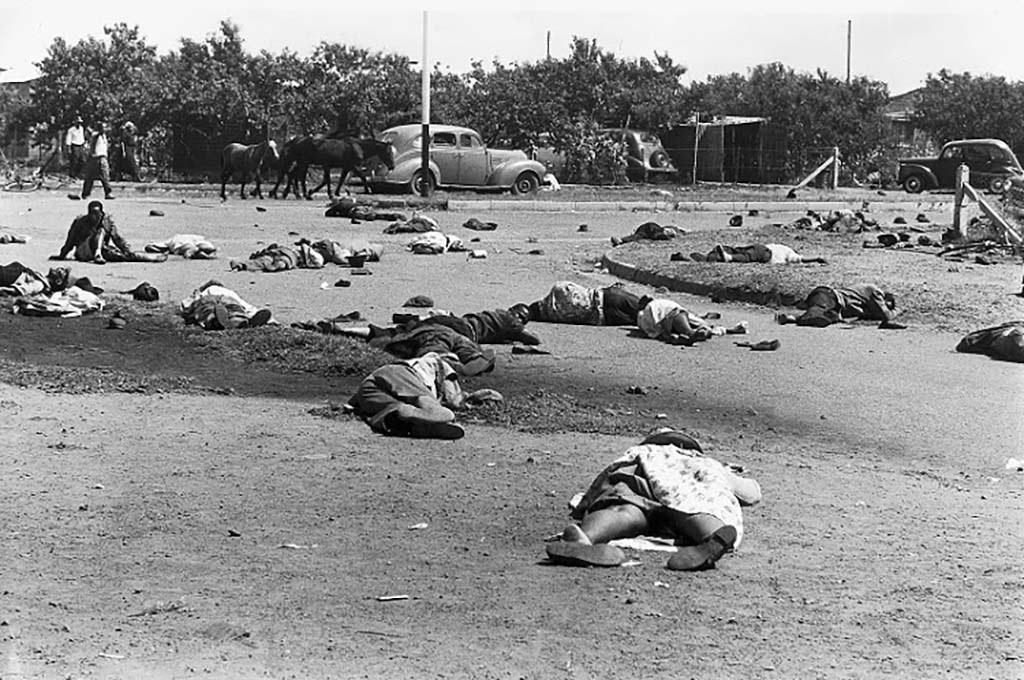CURRENT AFFAIRS UNIT, RADIO KWARA, ILORIN
PROGRAMME: NEWS COMMENTARY
DATE OF BROADCAST: 16/3/89 AT 1810 HOURS
WRITER: LANRE KAWU
This week, the international community has been celebrating the week for the elimination of racial discrimination. It commemorates the massacre of about seventy demonstrators, in the little township of Sharpville, on March 21st, 1960. The crowd that gathered on that fateful day, had done so, to demonstrate the Black majority’s abhorrence of the pass system, one of the obnoxious laws of the apartheid South African state. As was shown later, most of those killed that day, were shot in the back, as they fled from the police station. The Sharpville massacre was a turning point in the national liberation struggle of the majority Black population in South Africa. It put a lid on the previous decades of struggle within the system, while paving the way for another.
The 1940s saw the emergence to prominence in black politics, of such youth activists within the ANC, as Oliver Tambo, Nelson Mandela, Peter Mda, and Anton Lembede. These young men helped in the re-awakening of all the organs of the ANC. This became especially manifest, with the adoption of the 1949 Program of Action. A very militant program, that was also linked with another youth slogan of winning freedom in their lifetime, opened the way for the creation of alliances and unity across race lines.
These developments of the late 1940s, flowed into the Congress Movement of the 1950s, when the African National Congress entered into a fighting alliance with the South African Indian Congress; the Coloured Peoples Congress; and the Whites’ Congress of Democrats. It was this Congress Alliance that launched the 1952 Defiance of Unjust Laws Campaign; one of the most successful mass, militant actions of the South African people. The Treason Trial, and the adoption of the Freedom Charter, represented the final movements of this period of South African history.
As a result of these developments, the level of political consciousness reached greater heights amongst the people of South Africa. The racist regime became more aggressive, in attempts to stem the tide of the Black people’s restiveness. It must be remembered that this was the decade when the wind of independence was blowing away the colonial map of Africa. In a sense therefore, the Sharpville massacre represented the desperate nature of the apartheid state at a historical conjuncture. The juncture of both national restiveness and international shifting of the balance of political forces.
The immediate aftermath of the Sharpville massacre, saw the banning of the national liberation movement in South Africa. Underground political action and the armed struggle became the new issues of the South African political agenda. This is the period that witnessed the birth of Umkhonto We Sizwe, the military wing of the ANC. Twenty-nine years after the massacre at Sharpville, South Africa has undergone a lot of changes, which underscore the fact, that the apartheid state cannot be maintained for a long time into the future.
Several reasons can be called forth, to explain this observation. Some of them include the collapse of the Portugese empire in Africa, and Zimbabwe’s independence, all of which used to serve as the buffer zone between freedom and slavery in Southern Africa. Then there is the unprecedented rise in the political and military actions of the South African people. This is especially noticeable from the Soweto Massacre of 1976; the formation of the mass democratic movement; the rise in the prestige of the ANC as well as the breakup of the monolith of White supremacy.
Twenty-nine years after Sharpville, we can conveniently say that the struggle for a non-racial democratic South African State has come closer to being achieved. It is the achievement of such a peace-loving South Africa, that will be greatest tribute to the martyrs massacred at Sharpville, twenty-nine years ago.


